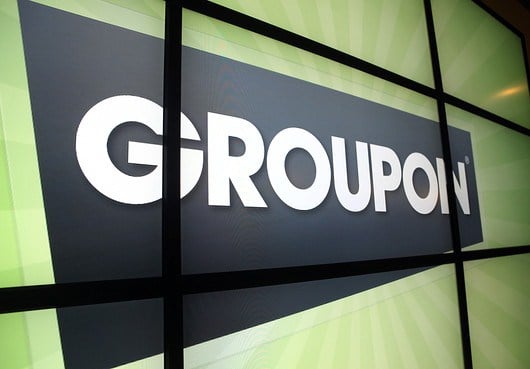One of the oft-mentioned disadvantages of Web 2.0 initial public offerings is that some have left one or two people who hold the fates of the companies they founded in their hands. Usually this is due to the presence of more than one class of shares that determines voting control. Such is the case with Facebook Inc. (NASDAQ: FB). And the situation at Groupon Inc. (NASDAQ: GRPN), the board of which may want to dump CEO and co-founder Andrew D. Mason, is fairly similar. Source: courtesy of Groupon Inc.
Source: courtesy of Groupon Inc.
Mason holds 41.7% of Class B shares, which gives him a 19.5% share of voting rights. However, Eric P. Lefkofsky, Groupon’s co-founder and executive chairman of the board, has shares with voting power of 27.7%. Together with several other smaller shareholders, including Bradley A. Keywell, Lefkofsky can decide on Mason’s fate. The heart of the matter is spelled out in the Groupon Risk Factors, as filed with the SEC:
Our Class B common stock has 150 votes per share and our Class A common stock has one vote per share. As of December 31, 2011, our founders, Eric P. Lefkofsky, Bradley A. Keywell and Andrew D. Mason control 100% of our outstanding Class B common stock and approximately 33.5% of our outstanding Class A common stock, representing approximately 57.4% of the voting power of our outstanding capital stock. Messrs. Lefkofsky, Keywell and Mason will therefore have significant influence over management and affairs and over all matters requiring stockholder approval, including the election of directors and significant corporate transactions, such as a merger or other sale of our company or its assets, for the foreseeable future. This concentrated control will limit your ability to influence corporate matters and, as a result, we may take actions that our stockholders do not view as beneficial. As a result, the market price of our Class A common stock could be adversely affected.
The case against Mason is that he is immature as a chief executive and does not have the skill to pull the company out of a flat spin. A series of business missteps and accounting problems have helped drive Groupon’s stock price from a 52-week high of $25.84 to its current price of $3.96. Lefkofsky may turn against co-founder Mason just to save his own investment.
But Lefkofsky is as responsible for Groupon’s trouble as much as Mason is. Lefkofsky has had his level of control since before the company went public. At each troubling turn he probably could have pressured Mason out, and now it may be too late.
Lefkofsky and Mason face the problem that no one may be able to fix Groupon. Its model could have been flawed since the start. It was always easy for smaller competitors to take a portion of the market. Groupon did not have, as business school professors like to say, a “very large moat.” And larger retailers like Amazon.com Inc. (NASDAQ: AMZN) and Wal-Mart Stores Inc. (NYSE: WMT) have started similar services to hold off the new company.
Could some set of business innovations or a better execution have made Groupon a greater success? Maybe. Lefkofsky never gave it a chance. His decision about Mason will come too late.
Douglas A. McIntyre
Take This Retirement Quiz To Get Matched With An Advisor Now (Sponsored)
Are you ready for retirement? Planning for retirement can be overwhelming, that’s why it could be a good idea to speak to a fiduciary financial advisor about your goals today.
Start by taking this retirement quiz right here from SmartAsset that will match you with up to 3 financial advisors that serve your area and beyond in 5 minutes. Smart Asset is now matching over 50,000 people a month.
Click here now to get started.
Thank you for reading! Have some feedback for us?
Contact the 24/7 Wall St. editorial team.



